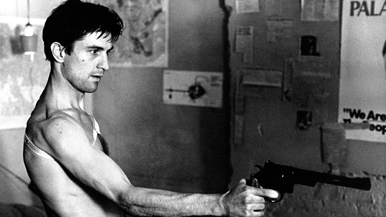|
|
Viking Night: Taxi DriverBy Bruce HallMay 17, 2011
If you’re going to write a retrospective on Taxi Driver, I guess you kind of have to mention John Hinckley. I was going to avoid it, because that conversation really is as stale as a day old bagel. It’s also beyond the scope of this article. But it does bear mention because for some, there’s a stigma attached to this film and I don’t think that’s fair. It has been argued that the man who shot President Reagan was obsessed with this movie and derived at least some level of inspiration from the story. Of course, Hinckley missed the point of the film, but so do many of the critics who tie the two together. Some of the same people who claim that Hollywood is out of ideas would also have you believe that Paul Schrader and Martin Scorsese invented the eccentric loner. In reality, the character of Travis Bickle was heavily based on the man who shot George Wallace in 1972. This means the movie that supposedly inspired the nut who shot the President was itself inspired by a different nut who shot a different politician. It seems to me that crazy is as crazy does. Art doesn’t imitate life so much as art becomes a prism through which we view life. On its own merits, Taxi Driver is a haunting (and disturbingly realistic) look into the mind of an unbalanced man who lets his sickness twist his view of the world. But the world suffers from its own set of delusions, and because of this we don’t always identify these people until it’s too late. When you consider how close killers like Booth, Oswald and McVeigh came to being caught before they acted, it’s even more chilling to see one person after another fail to see how badly Travis Bickle needed a friend, a hand, a doctor. I’m not suggesting we all run down to the nearest porno house or taxi service and sign up for the Adopt a Psycho program. But understanding others is just as important a part of life as understanding yourself, and on most days I don’t see a lot of people working on that. I’ve felt this, but in a slightly new way each time I’ve watched Taxi Driver. To me, the way it makes me think about myself is part of what makes this such an enduring film. More than many other films, Taxi Driver truly qualifies as a work of art. but maybe it’s even more than that. Maybe it’s a prism (see how I came back to that?). And maybe it’s one that everyone - not just the Travis Bickles of the world - should take the time to look through.
|

|
|
|

|
Friday, November 1, 2024
© 2024 Box Office Prophets, a division of One Of Us, Inc.


